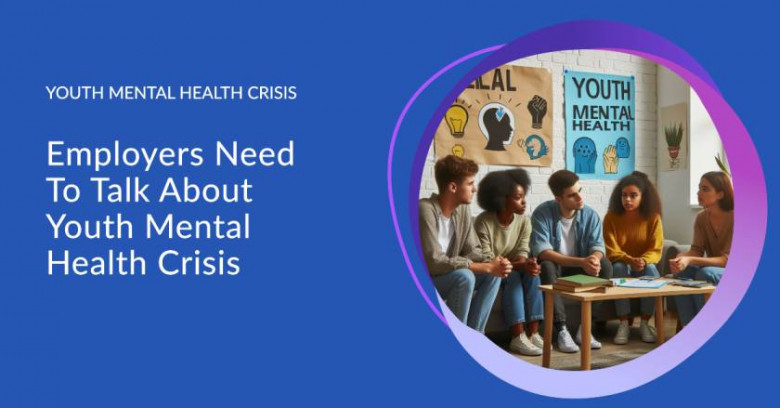views

In today's busy workplaces, it's super important to think about how everyone feels, especially younger people who might be going through tough times with their emotions. Although conversations on mental health in the workplace have been more popular recently, there is still an important factor that is frequently ignored. That's what we call the youth mental health crisis, and it's something bosses need to talk about.
Helps Everyone Work Better: When people feel down or stressed, it's harder for them to do their best at work. Ignoring the youth mental health crisis can have detrimental effects on workforce productivity. Young employees grappling with emotional health challenges may struggle to focus, meet deadlines, or collaborate effectively with their colleagues. By addressing these issues head-on, employers can create a supportive environment that fosters productivity and innovation.
Keeps Good Workers Around: If employers don't pay attention to how their employees mental health, those workers might leave for a job where they feel more supported. By caring about their emotional well-being, employers can keep the good people they've already got and attract new ones who want to work in a place that cares. By acknowledging and addressing the youth mental health crisis, companies can enhance employee retention and attract top talent.
Doing the Right Thing: Employers have a duty of care towards their employees' well-being, both morally and legally. It's not just about work; it's also about being fair and kind. Employers have a responsibility to make sure everyone feels comfortable at work. If they ignore mental health issues, it can cause problems and even get them into trouble. By proactively engaging in conversations about emotional health and wellness, employers fulfill their ethical obligations and create a safer, more inclusive workplace culture.
Encourages Everyone to Feel Better: It's not just about fixing things when they go wrong; it's about helping everyone feel good all the time. By talking openly about mental health and offering ways to feel better, employers can help their workers be happier and healthier, both at work and at home. By openly discussing the youth mental health crisis and providing resources for preventative emotional health programs, employers empower their workforce to prioritize mental health and seek help when needed. This proactive approach can lead to a happier, healthier, and more resilient workforce.
Making the World a Better Place: When employers care about mental health, it's not just good for their workers—it's good for everyone. It creates a nicer, friendlier world where people feel supported and understood. Addressing the youth mental health crisis is not only a corporate responsibility but also a social imperative.
Conclusion
Employers play a pivotal role in addressing the youth mental health crisis. By prioritizing emotional health, fostering a supportive workplace culture, and providing resources for mental health support, companies can create environments where employees thrive personally and professionally. It's time for employers to recognize the importance of these conversations and take meaningful action towards positive change. Together, we can make a difference in the lives of young employees and build healthier, happier workplaces for all.











